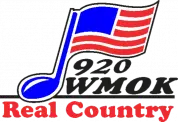(IRN) When it comes to farming, misconception about ownership and the industry divides the urban and rural. Now a group composed of volunteers and industry leaders are working to challenge the urban/rural disconnect.
“We researched what folks in Chicagoland think about us and how we might reach them better. We found that they feel disconnected from farmers and disconnected from their food production,” said Lindsay Mitchell, communications and marketing director for the Illinois Corn Growers Association, told The Center Square.
Most people in Illinois cities believe that the majority of farms in the state, 53%, are corporate owned. According to the U.S. Department of Agriculture, 96% of Illinois farms are family owned and operated, Mitchell said.
Members of the Illinois Beef Association, Illinois Corn Growers, Illinois Soybean Growers, Illinois Farm Bureau, Illinois Pork Producers and Midwest Dairy have fretted over what to do about the misunderstanding of farm ownership for years, Mitchell said. This year they launched the “We Are the 96” campaign with a Super Bowl ad and a year-long media effort that features photos and interviews with Illinois farm families.
“This is our opportunity to help non-farmers understand family ownership and let people know who we are,” Mitchell said.
Farmers are frustrated that people think corporate boards of directors are making decisions about the food and the land and the water in the state. Because of the ownership misconception, too many people mistrust farmers and don’t believe that farmers are making the best decisions that they can, Mitchell said.
When a corporation makes a decision about land use or animals or water, people think twice about whether the driving factor is the best interest of people in the state or the best interest of corporate shareholders. But when farmers make decisions about property that they own or animals that they take care of, people understand that the farmer’s family lives on the land that is impacted. They take care of those animals, Mitchell said.
“People feel that family farmers will take better care of the resources,” Mitchell said.
She uses water as an example. Farmers get their water from wells on the farm.
“When we explain that to audiences in Chicago, they say, ‘Well, of course the family is not going to pollute their own water because they have to drink it,’” Mitchell said.
People who don’t trust a corporate farmer are more likely to trust a family farmer, because they share their values, Mitchell said.
“Families in metropolitan areas connect with other families. We want people to get to know us and to understand that we aren’t that different from them,” Mitchell said.
The website We Are the 96 features profiles of family farmers from all over the state. Visit the website for a full list of fairs and other opportunities to meet Illinois farm families. People can submit questions directly to farmers on the website.









Comments